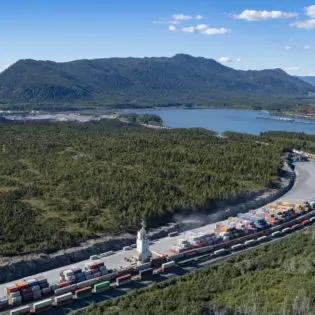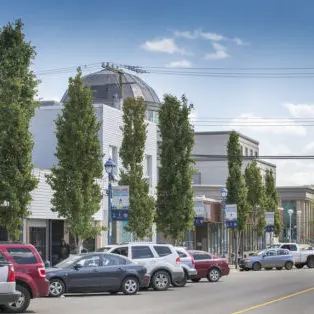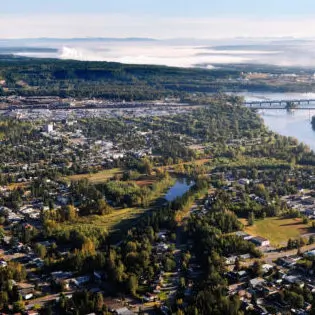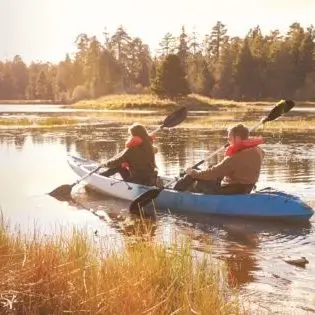Cariboo, British Columbia
The Cariboo region includes most of the northern interior of the province ranging from the Cariboo plateau to the Rocky Mountain ranges. The region is an area of vast landscapes and outstanding outdoor recreational opportunities. Many natural resource industries have head offices in this region where the landscape offers raw materials, and the infrastructure provides access to an adaptable labour force and international distribution chains. Mining, forestry, ranching, and agriculture are key economic drivers here, as are construction, retail, and professional services.

Regional Advantages

CONNECTED TO THE WORLD
With railways, highways, and airports nearby, the Cariboo region is a great home base, offering reliable and responsive connections worldwide.

URBAN & RURAL
With three main urban centres and a large rural population, the Cariboo region offers the benefits of a large community while still enjoying an idyllic rural lifestyle.

AFFORDABILITY
Inexpensive housing, relative to other mid-large urban centers, offers affordability advantages and ability to purchase homes in the region.

LIVEABILITY
Activities such as fishing, hiking, camping, snowmobiling and other winter sports provide a true four-season lifestyle.
Key Sectors

Agrifood, Seafood
& Food Processing

Clean Energy

Forestry

Critical
Minerals

Clean Tech

Agri Tech
Prince George
Prince George is situated in the heart of the province, 800 km north of Vancouver, British Columbia and 740 km west of Edmonton, Alberta. Resting at the junction of major provincial Highways 16 and 97, Prince George is also located at the confluence of the Fraser and Nechako Rivers. Established on the traditional territory of the Lheidli T’enneh, Prince George is surrounded by vast natural beauty, yet offers full urban amenities and superior connectivity to global destinations. The Prince George economy is well-diversified across all sectors. Over recent decades, Prince George has developed from a mainly forest-based economy to a city that has a strong natural resource base but also supplies goods and services for a broad range of sector activities throughout Northern BC, within Canada and internationally. Prince George’s five largest employment sectors are: healthcare & social assistance, wholesale & retail trade, manufacturing, construction, and educational services.
Quesnel
Quesnel is located in the central interior of British Columbia, Canada at the confluence of the Quesnel and Fraser Rivers. It is a commercial centre for more than 23,000 residents living in the North Cariboo and is well served by rail, road, and air connections to major centres in BC and beyond. Quesnel is located on Highway 97, the major north-south corridor in BC and only 120 km away from Highway 16, the major east-west corridor from western and central BC to Alberta. World class recreation can be found within minutes of Quesnel.
Williams Lake
Williams Lake is a major service centre to the vast, picturesque Cariboo Chilcotin region of British Columbia. Professional staff and pro-business governments have earned the city the reputation as being one of the best and most accommodating in the province to do business with. Williams Lake and area has a thriving and diverse economy supported by forestry, mining, agriculture, tourism and most of all our people. For lifestyle, Williams Lake can’t be beat. A modern city with all the major amenities, our great hometown and western hospitality makes this an ideal place for people raising a family, starting a business or retiring. The surrounding pristine wilderness provides unlimited playground while the conveniences of city living are just outside your door.
Communities
Prince George, Quesnel, 100 Mile House and Williams Lake are the key cities that contribute to Cariboo’s population of 169,712 people. Resource-based industries play a strong role in the area’s economy. A strong economic community development team is supporting local economic growth and stability, working with First Nations, regional stakeholders, small business members and industry representatives.
Regional Labour Force ProfileEconomic Development Organizations
First Nations
Cariboo’s proximity to southern British Columbia has enabled growth in health care professional services, administration and manufacturing, while continuing to be based primarily in the natural resources sector. It includes the city of Prince George, which acts as a major service centre for the northern half of the province.
Development corporations— owned collectively by aligned First Nations or by individual First Nations— are the primary vehicles by which First Nations pursue and advocate for sustainable economic development in the region.
Learn more about First Nations in BCEconomic Development Organizations
Regional Profile
Educational Institutions

The University of Northern British Columbia (UNBC) is a research-intensive public university with campuses across the Cariboo and Northern B.C. regions.

The College of New Caledonia is a comprehensive community college that delivers post-secondary training in health sciences, trades and technologies, business, university transfer, social services, and academic upgrading.

Thompson Rivers University (TRU) has a campus in Williams Lake, bringing multiple career preparation, trades and technology training, and university transfer programs and credits to the region.
Connect With a Regional Expert
Regional experts can help familiarize you with the amenities, infrastructure, and opportunities in each region. They can introduce you to the economic development offices and industry associations that will support the integration of your business into the province.

